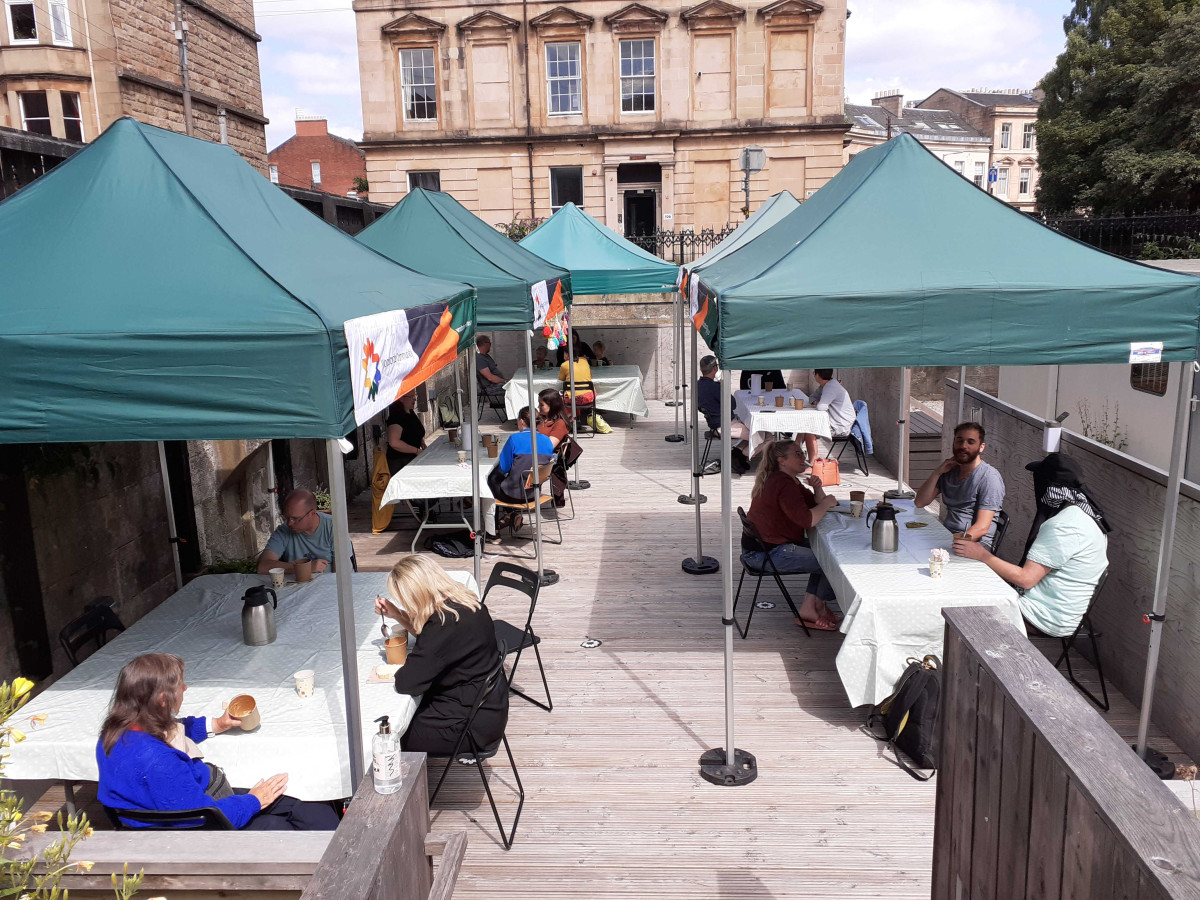
Travellers in Ayrshire
Find out more: https://www.woodlandscommunity.org.uk/communitycafe
The Woodlands Community Cafe runs spaces, programmes and events that support a wide range of local residents. All our initiatives are shaped by our values and designed to integrate social wellbeing with the environment. For example, we build social connections through transforming local spaces, such as our community garden. We reduce social isolation and hardship by building knowledge, skills and confidence including through events held at our meeting room and events terrace. Working alongside local residents, we empower people to take action.
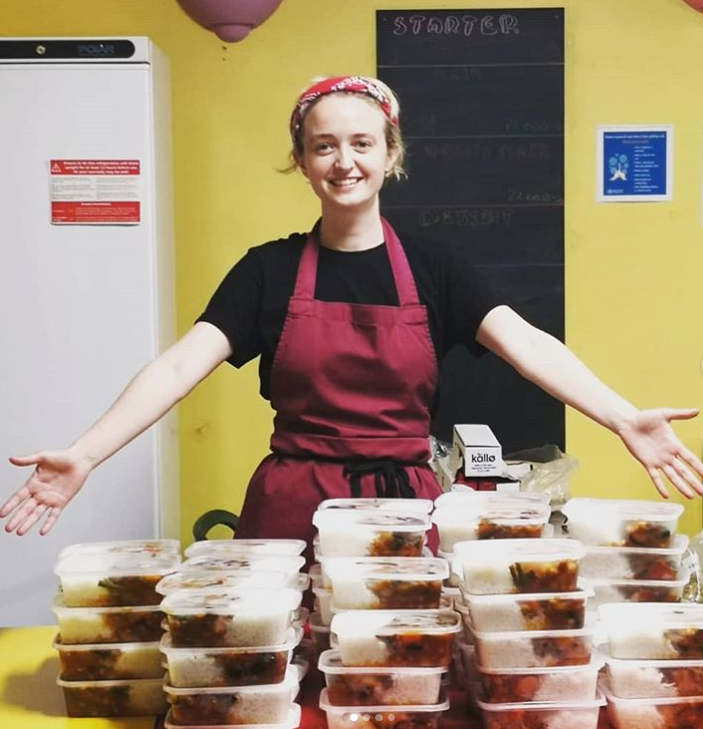
Neighbourhood Food Service, covid response
Our Community Café has provided access to nutritious vegan/vegetarian meals since 2014. Post pandemic it has operated as a seasonal outdoor café on our Events Terrace, but we will be piloting a new winter café indoors starting in January 2023
Our Veg Box scheme has run since November 2020. We buy seasonal fruit and veg from a local wholesaler, bag them up into household packs and give them out to local people on a pay what you can afford basis (free for people on low income). The veg packs also include simple and cost-effective recipe cards. Around 30 households per fortnight currently benefit from the scheme for which people can self-refer without any means testing. Veg boxes are currently picked up in person from our premises, but we are hoping to pilot a local e-bike delivery scheme for people who are housebound or unable to collect in person.
In a survey of veg box recipients almost 90% of users said that the scheme had stopped them from going hungry’ and/or ‘reduced the strain on their household budget’, 86% said that it had ‘helped them to eat more healthily’ and over a third said it had made a ‘really significant difference to the way they eat'. A recent evaluation report highlighted how the scheme is "successfully integrating anti-poverty and climate work" and emphasised the importance from a climate perspective of sourcing and distributing seasonal food independently of the supermarket sector/Fareshare.
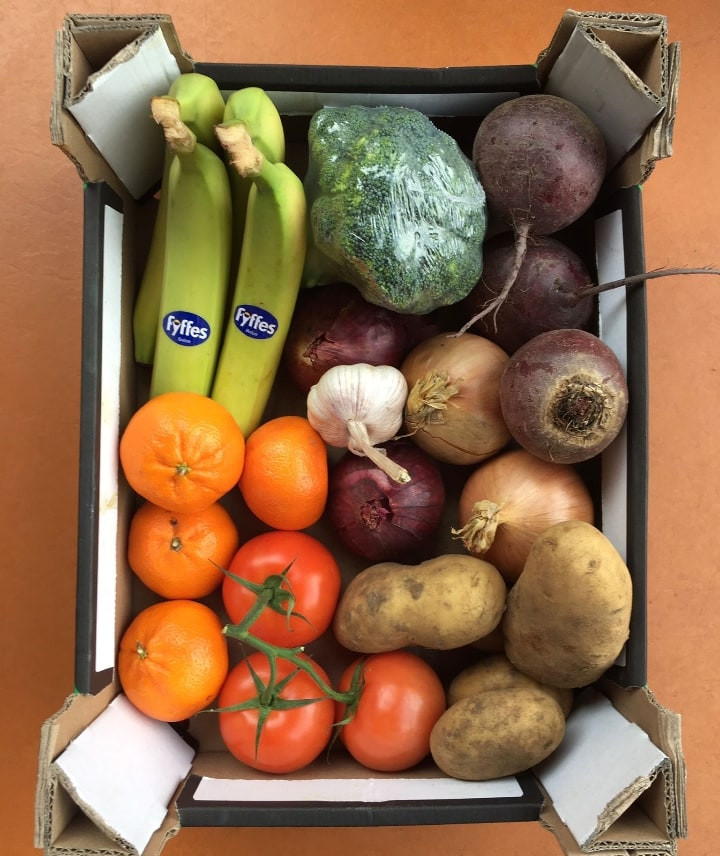
Box of vegetables delivered
“ Providing food for people on low incomes, in a manner which is respectful and dignified has always been central to our community food work. As far as possible we do not source our food from supermarket waste. As a number of academics and others have commented, there is a strong sense of stigma attached to the idea that while no one would ordinarily choose to purchase or eat waste food, it’s perfectly acceptable for people on low income to do so. ”
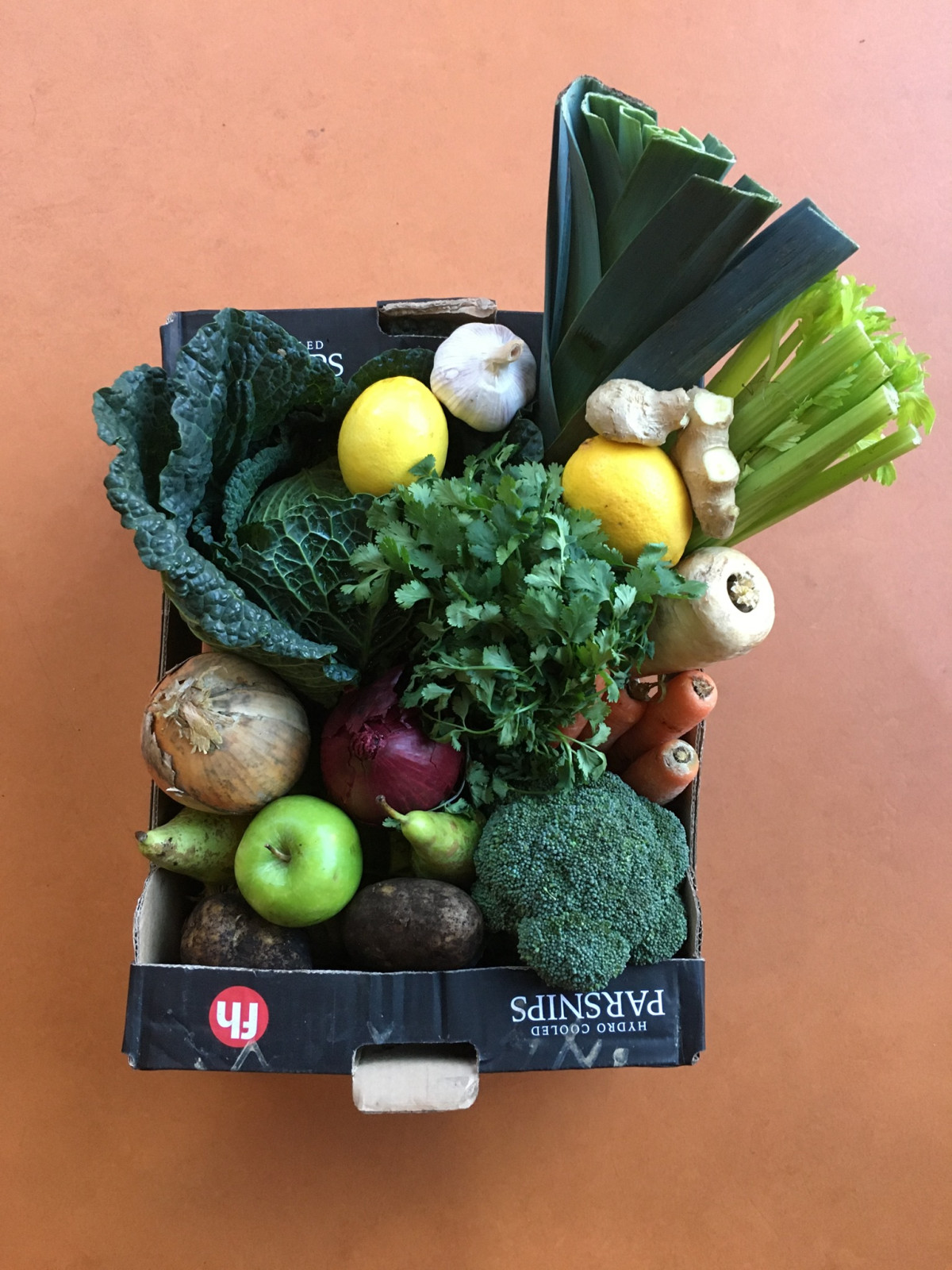
Box of vegetables delivered
Unlike other models, access to the Community Café and Veg Box Scheme is not means tested and people self-refer. Both the Community Café and the Veg Box Scheme operate on a pay what you can afford basis. Commenting on the contrast with food banks, one Veg Box user said:
“I've been to standard food banks before and the difference in how you get treated is huge! Xander is kind and clear and treats everyone with a huge amount of respect. I also like the pay what you can aspect and love the moments when I can pay it forward.”
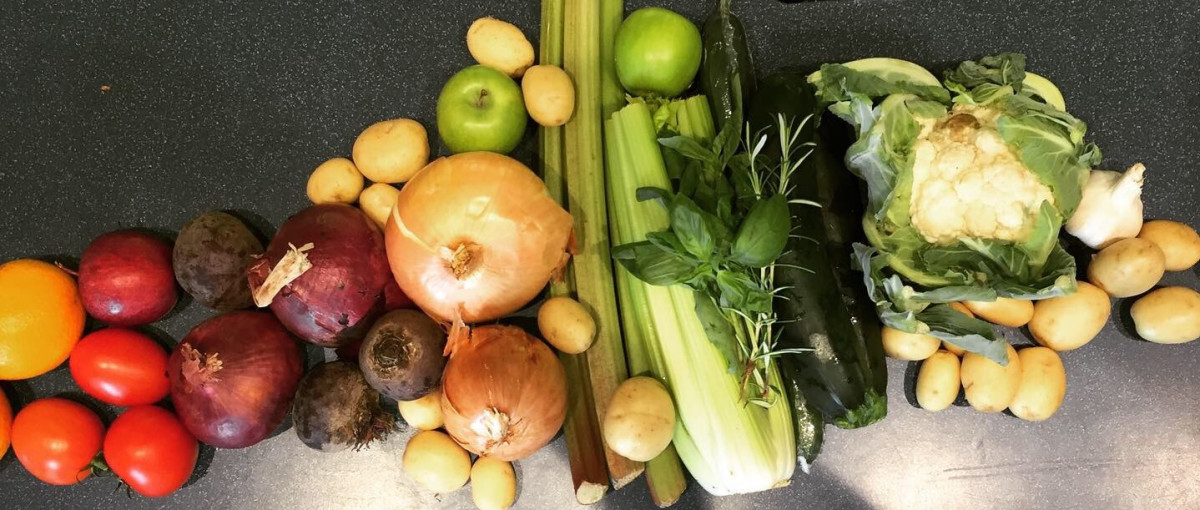
Veg box displayed
The Community Café provides much more than simply a meal for those who are struggling to put food on the table. People come to get a break from caring responsibilities, to combat loneliness, manage stress and poor mental health, learn new skills, seek money advice and to make friends and enjoy the sense of community. In the pre pandemic Café 10-15 people volunteered every week, helping to prepare a three course dinner for up to 80 people, under the supervision of two Café staff. When everyone sits down to eat together, there is no need for anyone to feel shame or stigma since there was no way for anyone to know whether someone had come to supplement their income, volunteer or for any number of other reasons. At its core, our cafe supports people to feel valued and able to contribute.
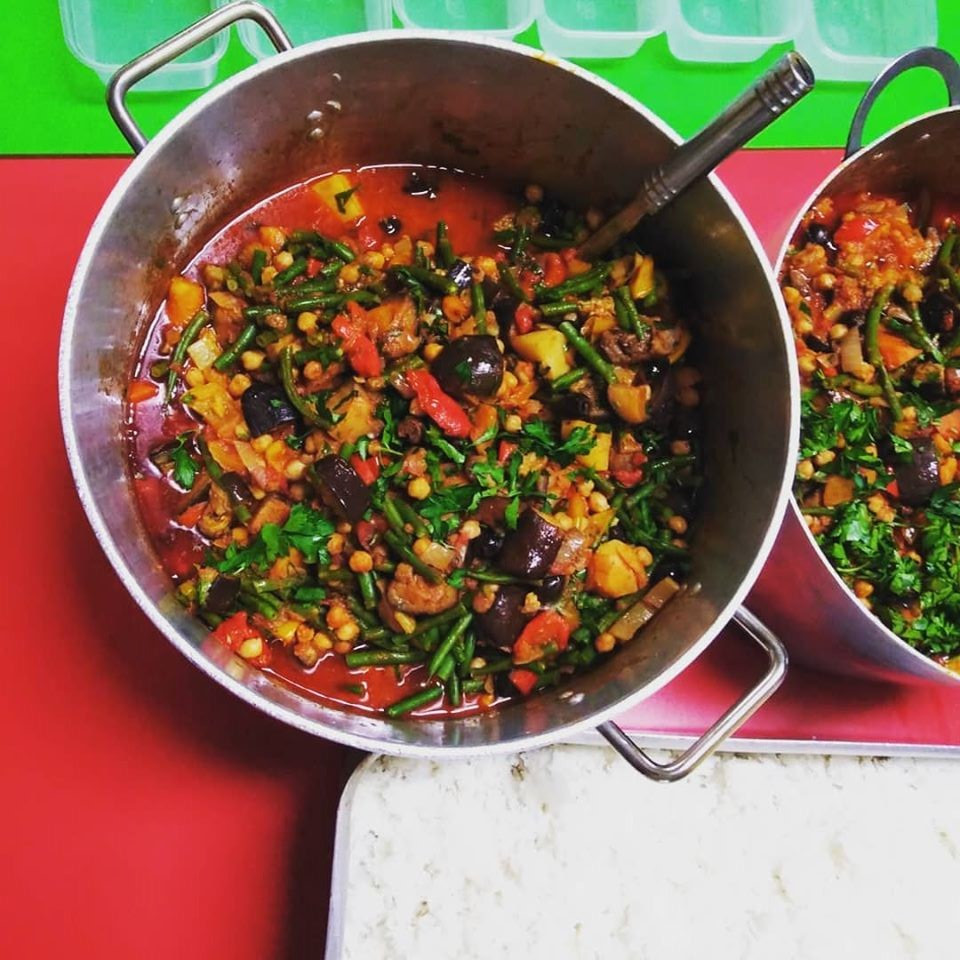
Food being prepared
Our main challenge relate to short term funding. Our food work is having to operate on significantly reduced levels of funding that we had previously. Staff routinely work on short term contract after short term contract which can make longer term planning and improvements challenging. This has reduced the amount of volunteer support we can offer, so it can be for example more difficult to involve service users in decision making.
As we emerge from the pandemic into an escalating cost of living crisis, we wish to revisit the options for a co-ordinated neighbourhood food response that pools the resources and expertise of a range of local partners and builds on the learning we acquired running a joint Covid food emergency response in 2020-1. We will be piloting a new Warm Welcome Winter café beginning from mid January. Once this is up and running we’ll also be holding focus group meeting(s) with volunteers to get their input into service development.
“Start small, simple changes can make a big difference. Go and visit another group who are already established to get ideas about what you can do. ” – Tim Cowen, Project Manager.